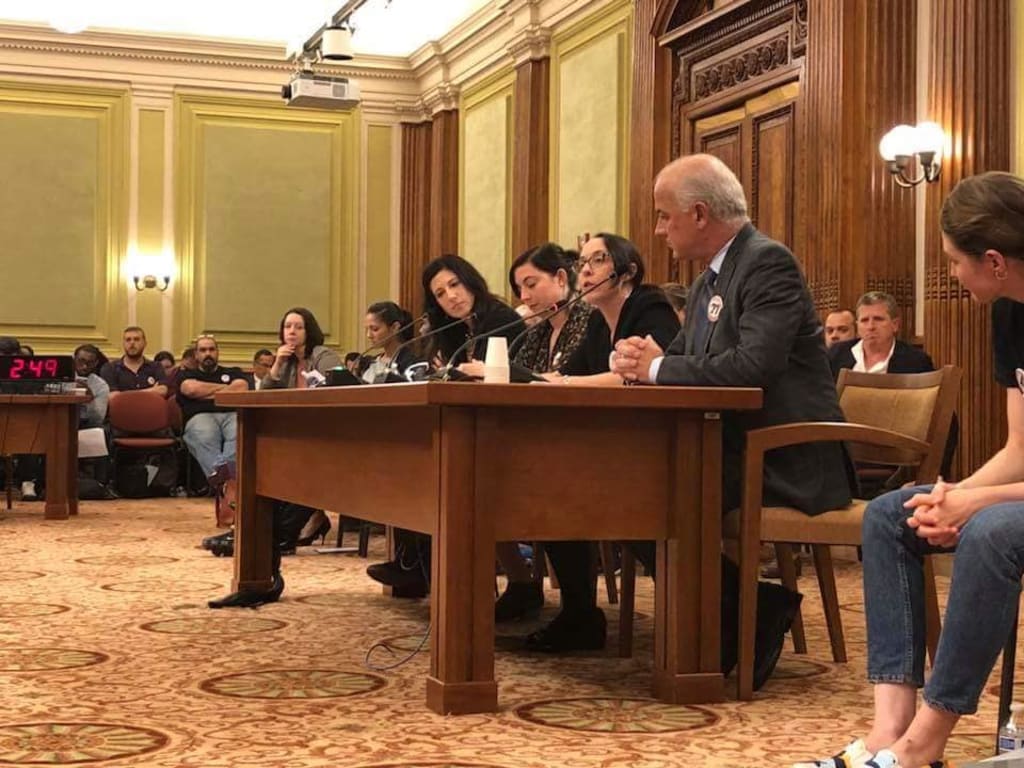Secure "Restrictive" Scheduling
How flexible scheduling is prized in the Restaurant Industry

Secure "Restrictive" Scheduling takes away a worker's right to create a work-life balance and places it in the hands of the government, special interests, and employers.
There has been a ton of news about Seattle passing the Secure "Restrictive" Scheduling Ordinance in July. Labor groups like the SEIU and it's little sister, Working Washington, continually tout the benefits of working under a rigid schedule and set of rules. However, just a few minutes online, researching articles and studies on the subject, a person may get a very different picture.
There have been many articles written and studies done on work/life balance and all things that play a part in having a healthy relationship with your job. One of the major themes is the Flexible Schedule. The term "Flex-time" is mostly seen in the 9 to 5 world, meaning that being able to work from home when it is convenient to you as an employee allows you to achieve a work-life balance that suits you. Let us apply the term "Flexible Scheduling" to those who work in the service industry.
All of us who work in the service industry know what a perk it is to have a flexible schedule. The majority of us choose jobs like waiting tables and tending bar because of the ability to make a decent amount of money in a short amount of time and the flexibility to do that when we want without our employer dictating our schedules.
https://www.nbcnews.com/business/careers/flexible-hours-rated-most-important-perk-work-n444616
Work/Life balance is an issue that has taken front and center in recent years. The 9 to 5 lifestyle doesn't seem as appealing to Millennials, and I would also include groups of people well beyond our younger cohorts. Recent studies show traditional 9 to 5 work is just not what people want to do anymore. Here is an example from Bentley University.
http://www.bentley.edu/newsroom/latest-headlines/mind-of-millennial
There are many such studies done showing the same thing over and over, having a flexible schedule that allows employees to create their own work/life balance is a positive, essential key to productivity and a healthy, happy lifestyle. Take some time and Google: Flexibility in the Workplace.
So how does this relate to waiting tables or tending bar? The people who work in the service industry already understand the need and perks of having a flexible schedule. It is how the industry works. Flexibility is beneficial for employees and employers when crafting schedules that fit the ebb and flow of a restaurant, and workers’ needs to live their lives. It is a balance.
But this balance gets disrupted with Secure or "Restrictive" Scheduling. Within this law, the idea of a rigid schedule is applied to an industry that thrives without it. It places confines on employers, who, in turn, have to put those confines on their employees.
Parts of the law, like "right to rest,” may have a catchy title, but it also incorporates some negative consequences. A significant flaw in the Secure "Restrictive" Scheduling Ordinance as it has passed in Seattle is making it harder for workers to "Clopen.” "Clopen" is the name service people give to the situation where we may close a shift, and then the next shift is an opening shift. Close/Open or Clopen. This situation can be brutal, no doubt, depending on where you work. But it is also a situation that many are willing to take because it benefits us somehow. It may be that your two best money making shifts are Friday night closer and Saturday brunch opener. You may make your entire month’s rent in that clopen. It may also benefit the work/life balance. As a server or bartender, I may want to volunteer at my kid’s school for Science Fair on Friday night. If I usually work Thursday nights and Friday nights and don't want to skip a shift, I will ask to swap my Friday night shift for a Friday day shift. But that puts me in a Clopen situation. Under the current law, if there are not 10 hours between that Thursday and Friday shift, my employer will have to pay Predictability Pay to those of us swapping. The employer, if he needs to watch cost, will say no. My schedule is no longer in my hands but in the hands of my employer.
This is what the Secure "Restrictive" Scheduling does. It takes the power to craft work-life balance out of workers’ hands and places it in the hands of the government and the employers. According to the many studies done across the country and the many articles based on interviews with working people, having a schedule that they can craft is far more appealing and lucrative over one that is dictated to them through laws like Restrictive Scheduling . As Seattle moves forward in expanding these Restrictive Scheduling laws, workers need to voice their concerns and let it be known that we prize flexibility over rigidity.






Comments
There are no comments for this story
Be the first to respond and start the conversation.